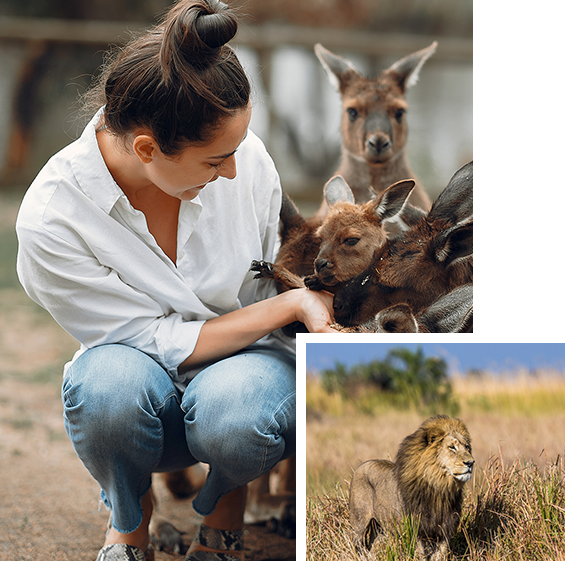Have any questions
Recently Asked Questions
The sounds of safari are a symphony of life. The rustle of leaves, the distant calls of animals, and the wind sweeping across the plains all contribute to an immersive experience, filled with the music of the wild.

Wildlife plays a crucial role in maintaining ecosystems and natural balance. Animals help regulate populations, spread plant seeds, and support biodiversity, all of which are vital for the health of the planet. Losing even one species can disrupt entire ecosystems.
Predators help regulate prey populations, ensuring that ecosystems remain balanced. By keeping herbivore numbers in check, predators prevent overgrazing and promote plant diversity, which in turn supports a wide variety of other species.
Major threats to wildlife include habitat destruction, climate change, poaching, and pollution. Human activities such as deforestation and urbanization have reduced natural habitats, while illegal hunting and environmental degradation further endanger many species.
Climate change alters habitats, forcing animals to migrate or adapt to new conditions. Rising temperatures, changing weather patterns, and loss of natural habitats have led to declining populations for many species, and some face the threat of extinction.
Animal migration often occurs in search of food, breeding grounds, or more favorable climates. It ensures the survival of species by allowing them to exploit seasonal resources, avoid predators, or escape extreme weather conditions.
Ecotourism provides financial incentives for local communities to protect wildlife and natural habitats. It helps fund conservation efforts, raise awareness, and reduce practices like poaching, offering an alternative means of income through sustainable tourism.